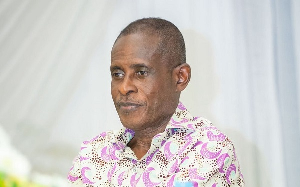The associate director for the Centre for Democratic Development (CDD), Dr Baffour Agyeman-Duah, has observed that the (P)NDC government had a policy of being antagonistic towards wealthy people and wealth creation by individuals. This culminated in a phobia for wealth among Ghanaians.
Dr Agyeman-Duah explained that people who had the entrepreneurial capacity at the time, feared to invest in the country because of the anti-wealth policies of the Provisional National Defence Council (PNDC), which was not changed considerably when the council metamorphosed into the National Democratic Congress (NDC) in 1992.
?Most Ghanaians are now beginning to expose their wealth and invest in the private sector, due to the policy of wealth creation being pursued by the New Patriotic Party (NPP) administration,? the CDD director disclosed.
The director brought this to light at a forum organised by the Commonwealth hall of the University of Ghana, Legon, and dubbed, ?Public office corruption: are the parties to be blamed or the system?? He described members of the opposition as having what he called, ?perceptual corruption? against officials of the present administration. Perceptual corruption, he noted is the constant perception or notion that some form of corruption is going on in an institution, without having any proof to that effect.
?The opposition is interpreting everything done by the government as corruption because they feel that there should be corruption. Though the existence of corruption in the country cannot be ruled out completely, there is always the need to look for evidence to prove them, as mere perceived corruption may always result in unnecessary problems, rather than fostering democracy,? he stated.
A research carried by the CDD, according to the director, established that in most countries, both developed and developing, corruption is always rife in certain institutions like; CEPS, IRS, Police Service and school administration. He attributed corruption in weaker economies to poor salary structures, personal aggrandizement, and the failure to establish strong structures of governance to help check corrupt practices.
Dr Agyeman-Duah commended the government for giving meaning to its policy of zero tolerance for corruption through the jailing of Mallam Yussif Issa, a former Youth and Sports minister of the present government, and the on-going trials of a number of officials of the past government for their alleged involvement in acts of wrong-doing.
General News of Thursday, 10 April 2003
Source:
(P)NDC Was Anti-Wealth Creation- CDD Director
Opinions











